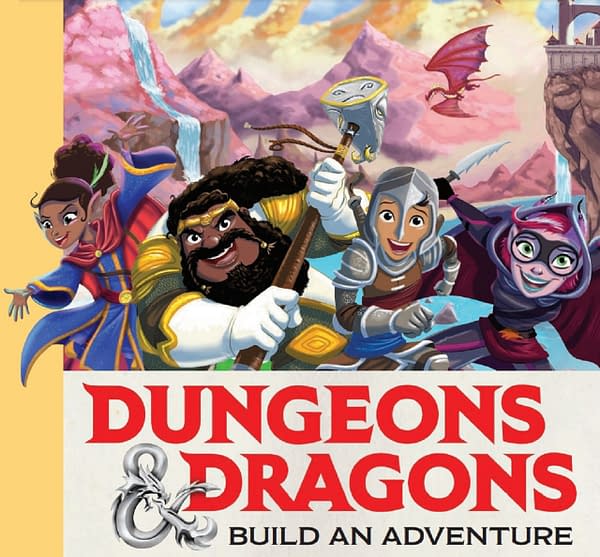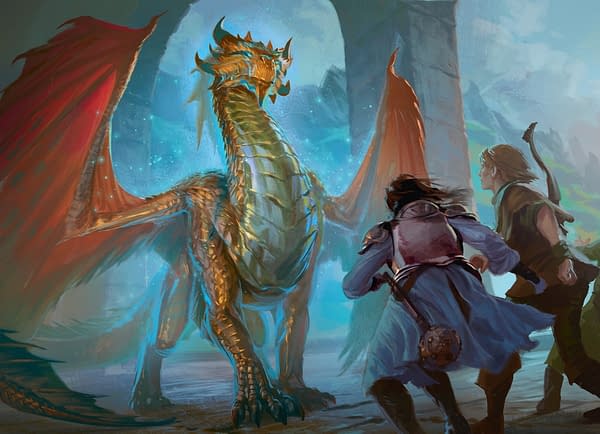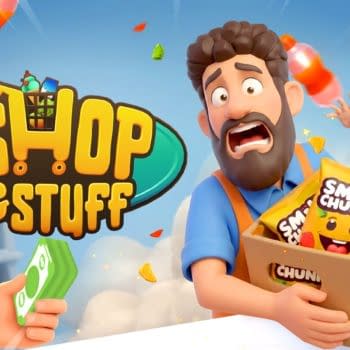Posted in: Dungeons & Dragons, Games, Tabletop, Wizards of the Coast | Tagged: d&d, dungeons & dragons, wizards of the coast, WotC
Dungeons & Dragons Launches New Afterschool D&D Program
Wizards of the Coast revealed a brand new set of items for those wishing to bring Dungeons & Dragons to the classroom. The company has launched a new set of educational handouts and materials that bring the wonders and excitement of the TTRPG into the classroom as a way to help teach kids different ways of storytelling. They have created two different versions of this as they have a set of items for grades 4-6 and 6-8. On top of that, they have created materials that can be used to create an afterschool D&D program in which kids can take part in a mini-campaign held once a week, much like any other club a school would provide for those looking for something else to do beyond regular classes.
All of this was done as the company will be releasing a new Starter Set soon, so those who wish to continue the adventure beyond school will have an option to do so with friends. We have more information about the program and handouts below, along with quotes from teachers who have used it in their lesson plans and afterschool programs. Educators looking to get involved with it can download a Classroom Cirucilum, and you can visit this link to find out more about how to get a kit for your school, as well as attend webinars that will help you learn to play and how best to utilize the game to teach kids various lessons through the gameplay.

"D&D saved my life, I've seen it save and change the lives of others, and I watch as it shapes the lives of the children who learn to play in my class," said Kade Wells, Harrisburg North Middle School ELA Instructor in South Dakota and founder of Building Heroez. "Dungeons & Dragons is the best metacognitive tool for education that I've seen. The reading growth observed and measured in my class clearly indicates the great things D&D can do in schools. My students' test score growth doubled each time they tested."
"I use Dungeons & Dragons both in my classroom and as an after school extracurricular with students from grades 3 to 8," said Emilie Rayner, an Elementary School Teacher in Ontario, Canada. "In class, I asked my students to go around the table and use a few words to describe Dungeons & Dragons to peers who had not heard of it. The words they chose were: 'telling a story together', 'making friends', 'sharing jokes', 'solving puzzles', 'battling monsters', 'being heroes' and 'creating crazy characters.' I think this perfectly describes the fun, whimsical, collaborative, problem-solving that is Dungeons & Dragons. I have never seen students push themselves to read the way I have with Dungeons & Dragons," said Rayner. "They beg me to get more books for the classroom and at recess, I see small groups of students from differing grades reading the books together and taking notes. I'm not sure there is any other activity that gets students to choose to take notes from books, usually above their grade level, during recess!
"The experience of building a [D&D] character, taking that character through adventures, [and then] struggling along with that character, is a great way to develop skills teachers strive to foster like creativity, teamwork, and perseverance in the face of adversity," said Lizz Simpson, a middle school librarian, teacher and games club advisor from Sudbury, Massachusetts. "The rules and the materials help build literacy, numeracy, and even social pragmatics outside of a formal classroom setting."

By its very nature, D&D fosters collaboration and problem solving while helping to build empathy and self-confidence in its players. Kids each take on a unique role, take turns, and have to work together to accomplish a common goal, and the memories can last a lifetime. D&D players never forget how they banded together to convince the goblins to be friendly or slaying the dragon that's been stealing their food. In addition to the numerous social, emotional, and creative benefits Dungeons & Dragons provides, kids get hands-on practice with math, reading, and writing. In the classroom, the new teaching kits aimed for grades 4-6 and 6-8 offer a way for educators to incorporate D&D into their lesson plans, reinforcing language arts, problem-solving, and interpersonal skills all while having fun going on an adventure.
"With a bit of patience and a set of polyhedral dice, a roleplaying game like Dungeons & Dragons can transform the classroom for young people," said Antero Garcia, Associate Professor, Stanford University. "Trying on new identities, collaborating with peers to create and explore new worlds, and building unforgettable adventures: these kinds of activities blend academic skills and social development in ways that just might be nothing less than life changing."
"D&D hones critical thinking and problem-solving — it's one of the few activities that prompts students to solve high-stakes problems in a low-stakes environment," said Zac Clay, D&D Club volunteer in the Bay Area. "Whether a student is into art, math, science, writing, or otherwise, D&D gives them an opportunity to experiment with their favorite skills while also developing new ones."











